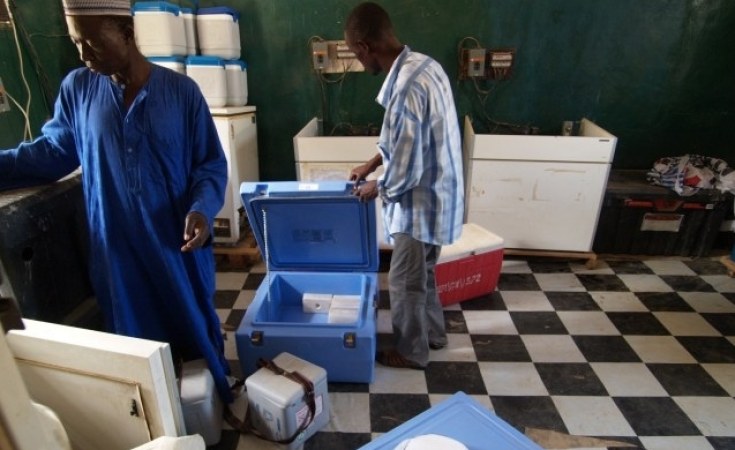The effort to eradicate polio is on "knife's edge".
This is according to Sir Liam Donaldson, England's former chief medical officer and the chairman of the Independent Monitoring Board of the Global Polio Eradication Initiative.
"We're 99 percent of the way to eradicating polio but the final one percent is proving enormously difficult," Donaldson said.
He was speaking at a media conference on Wednesday to release the board's quarterly global progress report. The monitoring work, which is carried out by a panel of experts in communicable diseases, epidemiology, communications and social sciences, started earlier this year.
The board sees the persistence of polio in Nigeria and other African countries, as well as in some Asian countries, as a global health emergency.
Success for the campaign is highly prized because polio - an incurable disease that causes death and disability, mainly among children - would become only the second global disease in history to be eliminated.
Smallpox was eradicated in 1979. The current initiative aims to stop polio transmission by the end of 2012.
However, the monitoring board reports that despite rising spending on the campaign, cases of polio have not declined, remaining at some 1,000 a year worldwide.
The worst affected African state is Nigeria, where polio is still endemic.
Unicef officials revealed earlier this week that 20 cases of wild polio virus were reported in six states in northern Nigeria. The polio monitoring board is concerned that surrounding countries are being affected by the viruses originating in Nigeria.
"With Nigeria seeding other places, it is a potentially explosive situation," Donaldson warned, "so we want to get Nigeria closed down as quickly as we can." He cited the recent elections, which paralysed the vaccination system, as a possible reason for the resurgence of polio in the country.
The polio monitoring board is also worried about "surprise" outbreaks of polio that have occurred in 14 countries throughout the world, including nine in Africa: the Democratic Republic of Congo (DRC), Cote d'Ivoire, Guinea, Gabon, Niger, Senegal, Liberia, Mali and Uganda.
Of these countries, the board singles out the situations in Chad, the DRC and Angola as the most worrying.
Donaldson said that in response to Chad's poor healthcare infrastructure, the World Health Organization (WHO) and Unicef are working with local officials to turn the situation around, especially in inaccessible areas.
He said that there are worrying reports from vaccination officials in the DRC of "widespread dysfunction on the ground". The monitoring board urged President Joseph Kabila, one of the few presidents not to have given a personal commitment to the vaccination campaign, to do so.
Donaldson said that in response to potential critique of efforts to identify risk and vulnerability in advance, the monitoring board is working on improving the identification and possible prediction of what he calls "tinderboxes", countries with low immunization coverage.
Reporting on countries outside Africa, the board congratulated India, with only one reported polio case this year, for what it described as "brilliant public health leadership". Donaldson said that India is on track to eradicate polio by the end of 2011.
On the other hand, Donaldson said that with 54 polio cases so far this year in Pakistan, double the number recorded in the first half of last year, "we are concerned that Pakistan risks becoming the last global outpost of this vicious disease".
Asked whether the use of a fake vaccination program in Pakistan - which, according to the Guardian, was conducted by the U.S. Central Intelligence Agency to get DNA from Osama bin Laden's family - could threaten public trust in vaccination campaigns, Donaldson replied, "Yes, it's a concern, the program is working on it and we hope to resolve any risks to the program." WHO has pledged to "assist the local authorities in taking measures to minimize any negative fallout from the report and sustain public trust in immunization".
Addressing funding, Donaldson noted the history of the G8 countries in funding the vaccination campaign but said there has been a general decline in support. "I don't think there has been any gross wastage of money. The issues are more to do with the competence and quality of immunisation and surveillance programs," he said.
The Independent Monitoring Board is led by WHO, Unicef, Rotary International and the U.S, Centers for Disease Control and Prevention, in partnership with several governments and the Bill & Melinda Gates Foundation.


